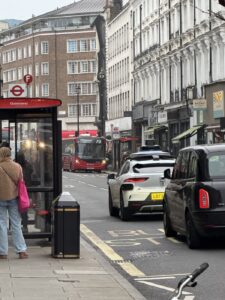Transport for London has set out a new plan to enable the capital’s taxi trade and private hire industry to meet the challenges of the next five years.
It says London’s licensed taxi and private hire services play a vital role in London’s green and sustainable transport network. They provide important services for Londoners and visitors alike with safe, accessible and inclusive options that complement London’s public transport network.
Since TfL’s first action plan was published in 2016, much has changed and a number of challenges remain: falling numbers of licensed taxis and taxi drivers; concerns about driver and passenger safety and accessibility; and the need to continue to improve air quality and reduce carbon emissions.
The new Taxi and Private Hire Action Plan sets out a number of actions that are intended to help to make positive changes in these industries and “enable it to continue to provide excellent services for Londoners”.
These include:
• Ensuring that taxis continue to have access to bus lanes wherever possible and encouraging boroughs to grant taxis access to bus lanes on borough roads
• Working with the Government to secure greater powers to make taxi and private hire services even safer, including powers to tackle cross-border hiring, powers to issue fixed penalty notices and powers to regulate taxi booking companies
• Improving the training offered to taxi and private hire drivers, including new online voluntary training courses and new Disability Equality Training that will be designed in partnership with disability stakeholders. Online voluntary training courses will cover a range of topics such as safety advice and conflict management, customer service skills and health and wellbeing advice, in response to calls from taxi and private hire representatives
• Making further amendments to The Knowledge to help attract new people to join the taxi trade. Earlier this year, TfL published a list of points candidates can be asked in their assessments. It is also in the process of reviewing and updating the Blue Book guide to learning The Knowledge. TfL continues to discuss options with taxi trade representatives to make better use of technology and for further changes to modernise the assessment process and make it more efficient
• Reviewing the optimum allocation, position and design of taxi ranks, including at public transport hubs
• Making the case to the Government to continue the plug-in taxi grant, reduce VAT from public charge points and remove VAT from the purchase of taxis and designated wheelchair accessible private hire vehicles
• Reviewing the optimum allocation, position and design of taxi ranks, including at public transport hubs, to ensure that taxi ranks are available for where needed
(Picture – TfL)
























